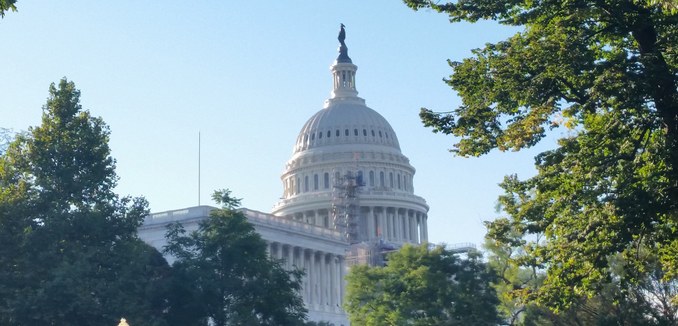The House of Representatives overwhelmingly approved a ten-year extension of the Iran Sanctions Act by a vote of 419-1 on Tuesday.
The bill does not impose new sanctions on Iran, but does extend the life of currently-existing ones that were created in response to Iran’s support for terrorism. It also gives the president the legal means to impose new sanctions if Iran is found to be in violation of last year’s nuclear deal. Current sanctions are set to expire on December 31.
The extension of the Iran Sanctions Act now goes to the Senate; if it passes there, it would have to be signed into law by President Barack Obama before the end of the year.
Even though the nuclear deal was supposed to resolve the issue of Iran’s nuclear program, the United States “should keep looking for ways to hold Iran’s feet to the fire on all the other bad behavior issues—support for terrorism, ballistic missiles, human rights abuses and all those kinds of things,” said Rep. Eliot Engel (D – N.Y), the top Democrat on the House Foreign Affairs Committee. “This legislation, I’m happy to say, fits the bill. We can provide the Administration tools to crack down on Iran and still be fully compliant with our obligations under the nuclear deal. After all, the exact language in this bill is already law on the books.”
Engel reminded the House that the law, which was originally passed in 1996, has always been reauthorized with strong bipartisan support and “demands that Iran abandon its nuclear weapons program, cease its ballistic program, and stop its support for terrorism. All of these remain threats to the United States and our allies.”
Foreign Affairs Committee chairman Ed Royce (R – Calif.) pledged to work with the incoming Donald Trump administration “to press back on Iran’s growing missile program, support for terrorism and even Iranian violations of the nuclear agreement.”
In response to the bill’s passage in the House, Ali Shamkhani, the secretary of Iran’s Supreme National Security Council, was quoted by PressTV as saying, “If you extend the sanctions, this will mean kicking the [nuclear deal] away and we will confront it through implementing powerful technical packages.”
However, the law does not actually impose new nuclear sanctions, which the United States removed in January to come into compliance with the nuclear deal.
Iran was found last week to have developed more “heavy water,” a component used in the making of nuclear weapons, than the nuclear deal allows. This is the second time that Iran has violated the deal’s heavy water provision. After the first incident this spring, the United States agreed to purchase 32 tons of Iranian heavy water in an effort to allow Tehran to come back into compliance with the agreement.
[Photo: Soccerdhg / Flickr ]




